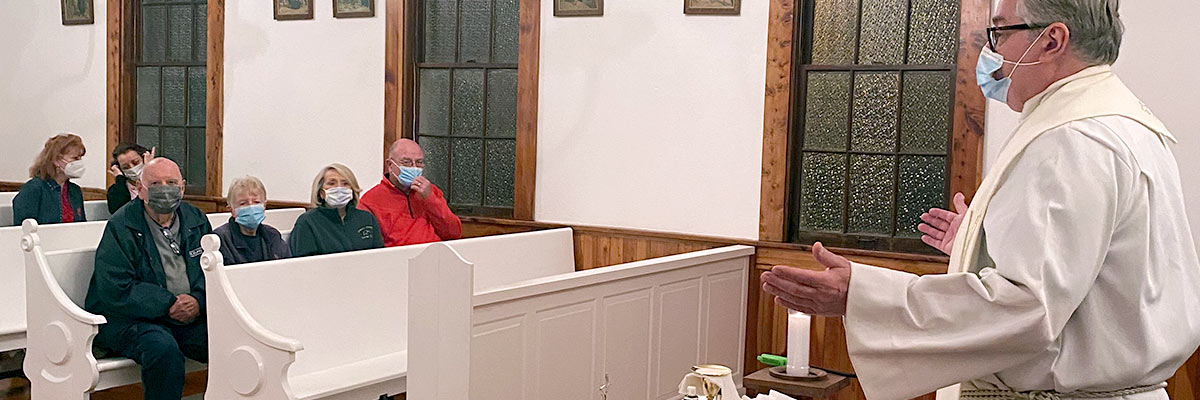Official Website of the
Catholic Diocese of Little Rock
Fourth Sunday of Lent, Year C
Published: March 6, 2016
Bishop Anthony B. Taylor preached the following homily during confirmation Masses at St. John Church in Russellville on Saturday, March 5, 2016, and Holy Redeemer Church in El Dorado on Sunday, March 6, 2015.

Bishop Taylor
One of the sad things about alcoholics and drug addicts is how they manipulate others into funding their addiction. They show up when money is supposed to arrive — a social security check — and talk their lonely, old mother into handing it over.
Even when everyone else resolves to use tough love and quit funding their wayward brother’s habit, his mother is just too tender-hearted to be tough and so he ends up wasting all her money too. Yet she just keeps taking him back.
And that’s how God loves us. In today’s Gospel, the Prodigal Son wastes all his money, yet his tender-hearted father takes him back too, but with a difference: this son is not asking for money. He has given up his life of dissipation and now wants to work to support himself and put his life in order.
Tough love has got to be medicinal, done for the ultimate good of the wayward person — or it’s not love at all.
Once he hears his son’s words of repentance his father is so happy he throws a party. His son is now back on the right track.
But you know, Jesus makes another point in this parable as well. It has to do with the “good” older son who resents his brother and is furious with his father for taking him back. So the father reaches out to him too and explains why the situation no longer calls for tough love. Sure, you need to be stern with someone who is unrepentant.
Pope Francis makes this distinction in a chapter titled “Sinners yes, corrupt no” in his just published book, “The Name of God is Mercy.” He writes, “Corruption is the sin which, rather than being recognized as such and making us humble, is elevated to a system, it becomes a mental habit, a way of living. We no longer feel the need for forgiveness and mercy, but justify ourselves and our behaviors ...”
This distinction between sin and corruption can be seen clearly, for instance, in the case of those bishops who put institutional concerns ahead of the need to protect children, as was highlighted in the recent movie “Spotlight” about the clergy sexual abuse crisis in Boston.
But here, in the parable of the Prodigal Son, the issue is sin rather than corruption and since the younger brother is resolved to change his behavior, what’s needed now is tenderness, not toughness.
Tough love has got to be medicinal, done for the ultimate good of the wayward person — or it’s not love at all. The older brother’s rejection of his already repentant younger brother is not tough love, it’s simply hatefulness.
During this season of Lent, we should take a closer look at this parable of the Prodigal Son and ask ourselves where we fit in the story. If you’re like me, you’ll find something of yourself in each of the characters:
- Like the younger son: Guilty of sins of the flesh, maybe sexual sins like him, or abusing alcohol and drugs, ruining our health with tobacco or gluttony, wasting time and money on worthless things, using others to get what we want — selfish, selfish, selfish!
- Also like the older son: Guilty of rancor and bitterness, sins of hatefulness and rejection, judgmental and unforgiving, intolerant and hypocritical, resentful when good things come to others who don’t deserve it. Once again, selfish, selfish, selfish.
- Yet deep down, we want to be like the loving father: Wise and forgiving, tough or tender depending in each case on what love demands at that moment, able to judge what is required for the good of others without being judgmental, able to welcome warmly back into our lives those who have hurt us deeply, able to reach out with compassion and understanding to those who are angry with us and don’t agree with us and even judge us and our motives unfairly. Loving them anyway, even when they don’t reciprocate.
That’s how God loves us.









